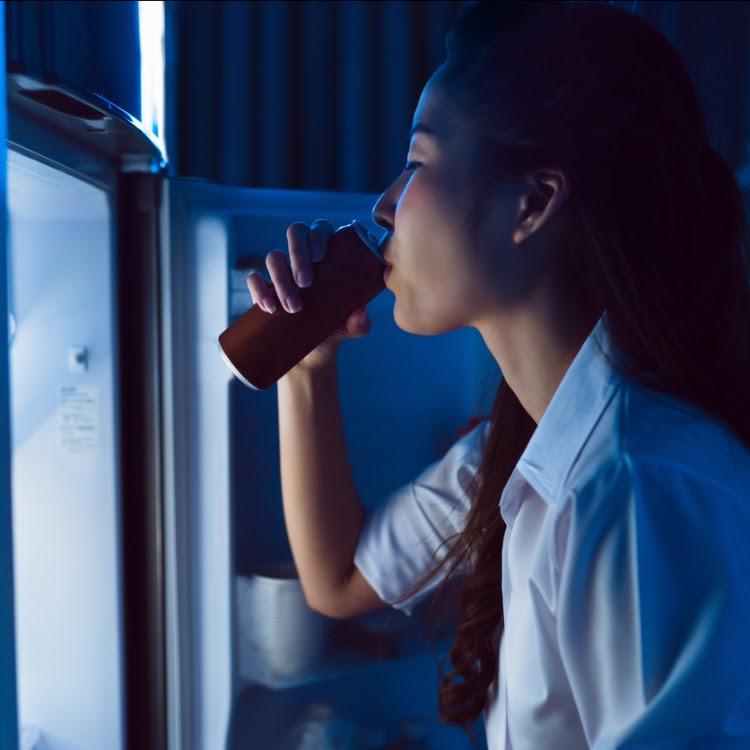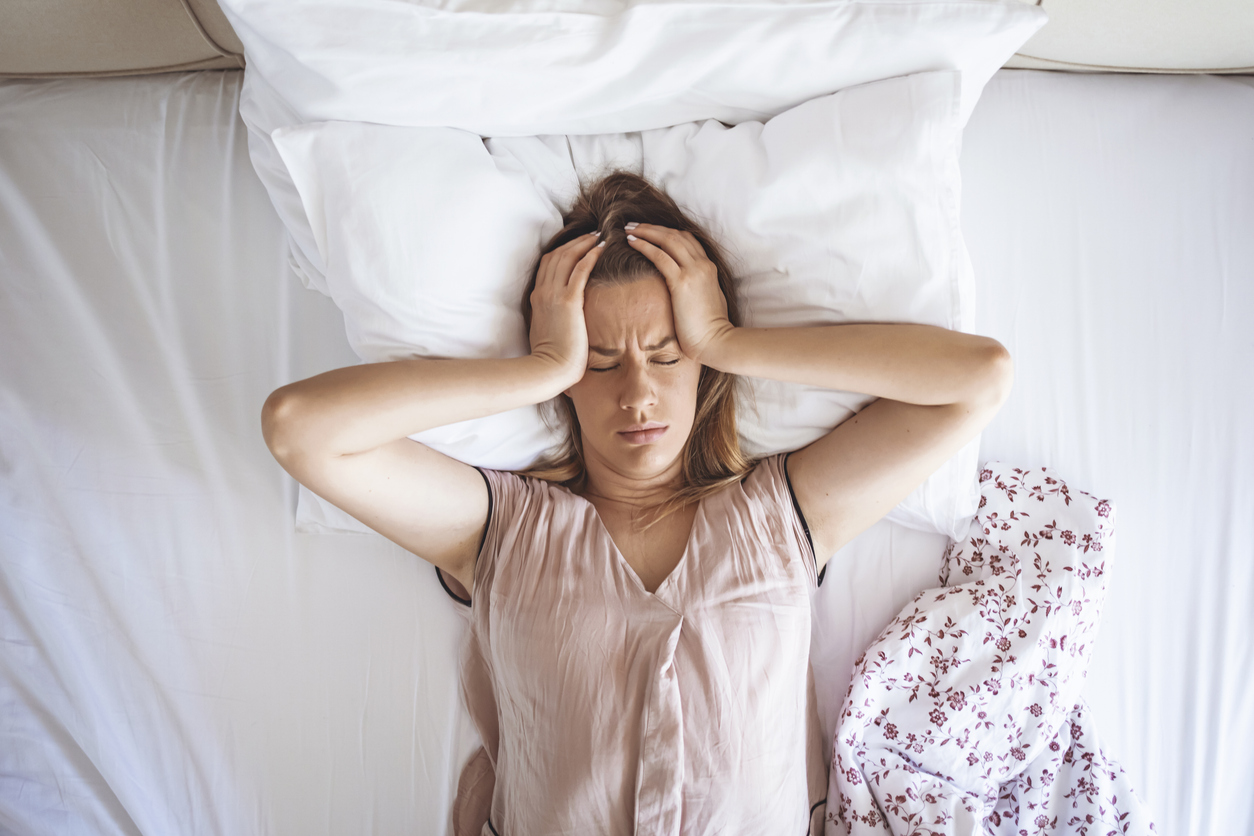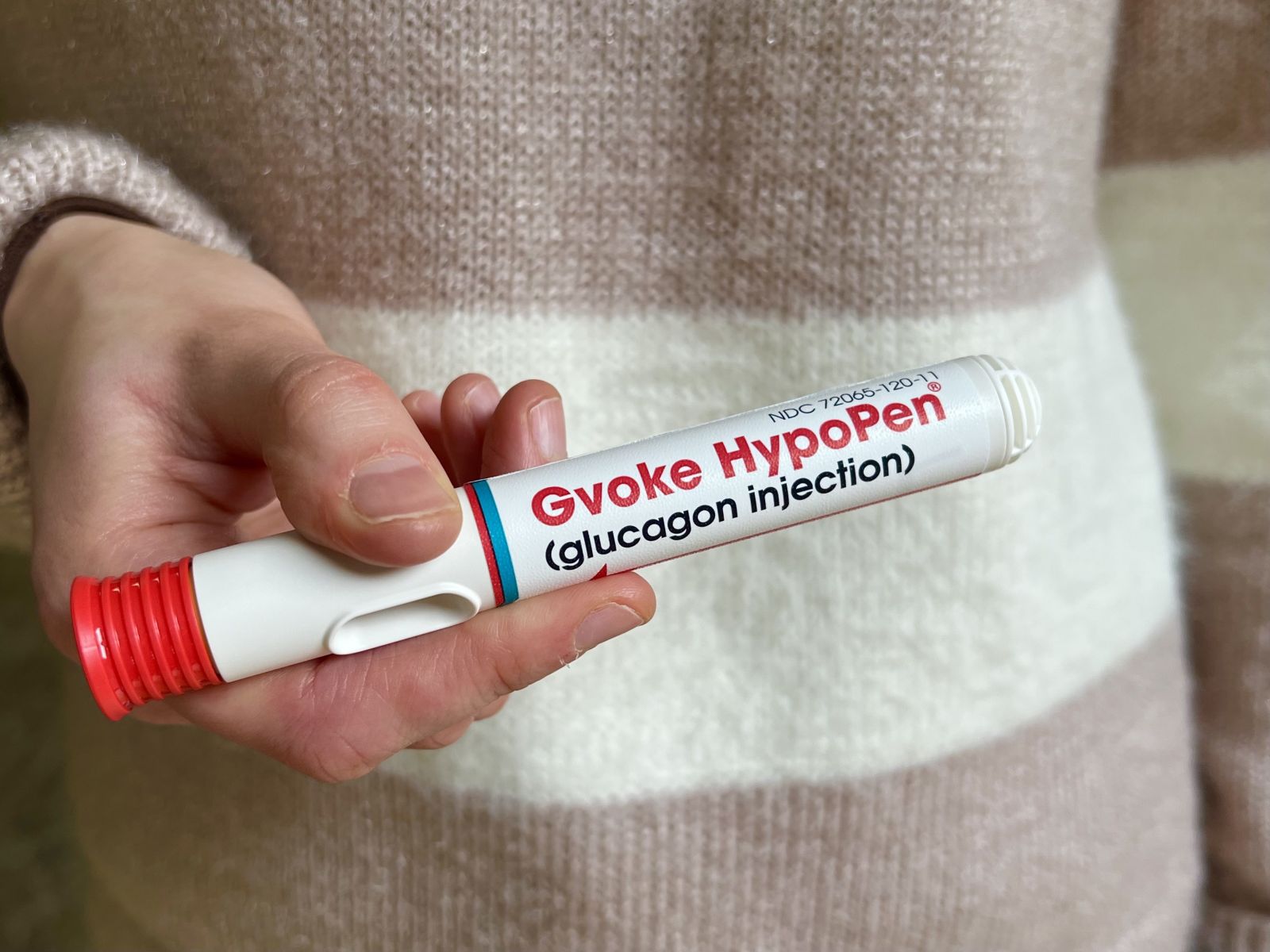A Guide to Navigating Nighttime Hypoglycemia
By Amelia Harnish
 Nocturnal hypoglycemia is a challenge for people living with diabetes. Experts share the best way to address and prevent the problem.
Nocturnal hypoglycemia is a challenge for people living with diabetes. Experts share the best way to address and prevent the problem.
Picture this: For whatever reason – maybe a break in a long series of gloomy weather days or finally, no one in your house is dealing with a respiratory illness – you’ve had one of those glorious and productive days. Not only did you deliver a major work project, you acquired two weeks of groceries, and still got an evening walk-in.
You might expect to be a little worn out the next day, but when you wake up the next morning, something’s not right. You’re drenched in sweat and have a pounding headache. Maybe you’re a little shaken up because of nightmares, or even scarier, you’re confused.
You check your blood sugar and it’s dangerously low. What’s going on? You’ve experienced nighttime hypoglycemia.
Acting fast after an episode of nocturnal hypoglycemia is critical. Here’s what to know about this common condition, including what to do and how family or other caregivers can play a role.
What is nighttime hypoglycemia?
Also known as nocturnal hypoglycemia, this condition occurs when blood glucose levels drop to very low levels (below 70 mg/dL) during the night. As the body relies on glucose for energy, low blood sugar levels can lead to disruptions in normal bodily functions during sleep, causing a range of symptoms.
Nocturnal hypoglycemia is a common challenge for people living with diabetes, especially those using insulin, explained Dr. Betul Hatipoglu, medical director of the Diabetes and Obesity Center at University Hospitals Cleveland Medical Center.
The global prevalence of nocturnal hypoglycemia in people with diabetes is up to 73%, according to a 2021 review.
“Hypoglycemia is more concerning at night because the individual may not recognize symptoms while sleeping, leading to prolonged and potentially severe hypoglycemia,” said Dr. Reza Nazemi, an endocrinologist at Cedars Sinai in Los Angeles.
What causes nighttime hypoglycemia?
The causes of nocturnal hypoglycemia vary widely, but a common cause is excess insulin.
“Too much insulin can be taken before bed to correct high sugars and cover meals or snacks, but then insufficient food is eaten before bedtime,” Hatipoglu said. “It can also be the effect of exercise done in the evening, which can continuously impact the nighttime blood sugars.”
Drinking alcohol (especially without food) can play a role, Nazemi added. Other illnesses, such as viruses, kidney disease, thyroid disease, and liver disease, can contribute to nighttime lows. Medications like beta-blockers can also increase the risk.
Symptoms of nighttime hypoglycemia
Warning signs can be subtle and each person experiences them differently, but here are the main symptoms to watch out for:
-
 Night sweats: Experiencing excessive sweating during sleep is a classic sign of nighttime hypoglycemia. The body responds to low blood sugar by releasing stress hormones, triggering sweating as a mechanism to raise blood sugar levels.
Night sweats: Experiencing excessive sweating during sleep is a classic sign of nighttime hypoglycemia. The body responds to low blood sugar by releasing stress hormones, triggering sweating as a mechanism to raise blood sugar levels. -
Disrupted sleep: You may experience restlessness, nightmares, or difficulty staying asleep due to the physiological stress caused by low blood glucose.
-
Waking with a headache: A morning headache can be an indicator of nighttime hypoglycemia, as the brain is sensitive to fluctuations in blood sugar levels.
-
Cognitive symptoms: Low blood sugar can affect cognitive function, leading to irritability, confusion, or difficulty concentrating.
-
Seizures or loss of consciousness: These can occur in severe cases.
While nocturnal hypoglycemia can happen to anyone managing diabetes, some may be more at risk than others. Risk factors for nighttime lows include having hypoglycemia frequently during the daytime (or not feeling them during the day), older age, dementia, and kidney disease.
What to do if you experience nighttime hypoglycemia
Treating nocturnal hypoglycemia is similar to what you would do during the day.
 “If you wake up feeling symptomatic, immediately check your blood sugar. If it's low (typically below 70 mg/dL), consume a fast-acting carbohydrate like glucose tablets, fruit juice, or regular (non-diet) soda, then recheck your blood sugar after 15 minutes,” Nazemi said. “Repeat if necessary, and follow up with a snack containing protein and carbohydrates.”
“If you wake up feeling symptomatic, immediately check your blood sugar. If it's low (typically below 70 mg/dL), consume a fast-acting carbohydrate like glucose tablets, fruit juice, or regular (non-diet) soda, then recheck your blood sugar after 15 minutes,” Nazemi said. “Repeat if necessary, and follow up with a snack containing protein and carbohydrates.”
Friends, family, and other caregivers also have an important role to play. If severe nocturnal hypoglycemia occurs, you may be too disoriented to act or unable to eat or drink. In that case, a ready-to-use glucagon pen or nasal formulation should be used, Hatipoglu said.
Make sure the people around you know the signs too, so they can help out in an emergency. If an emergency kit is unavailable, calling 911 may be the best option.
How to prevent nighttime hypoglycemia
Low blood sugar is concerning any time of day, but when it happens at night, you often can’t act immediately as you would when awake. That’s why it’s important to take steps to prevent nocturnal hypoglycemia. The same tactics that prevent daytime hypoglycemia – regular blood sugar monitoring and learning the signs – are the first steps.
“Analyzing and trying to find the cause is essential to prevent future episodes,” Hatipoglu said. “If possible, asking for a continuous glucose monitoring device for the future can be helpful.”
Nocturnal hypoglycemia can be frustrating and scary, but there are steps you can take to mitigate the effects. Staying vigilant and educating yourself and others around you can go a long way toward keeping you safe from this all-too-common phenomenon. Lifestyle changes like reducing alcohol intake and keeping up with diabetes management can help avoid nocturnal hypoglycemia.
If you’re experiencing symptoms of nocturnal hypoglycemia, speak to a healthcare provider who can recommend a CGM or other course of treatment.
Learn more about managing highs and lows here:








